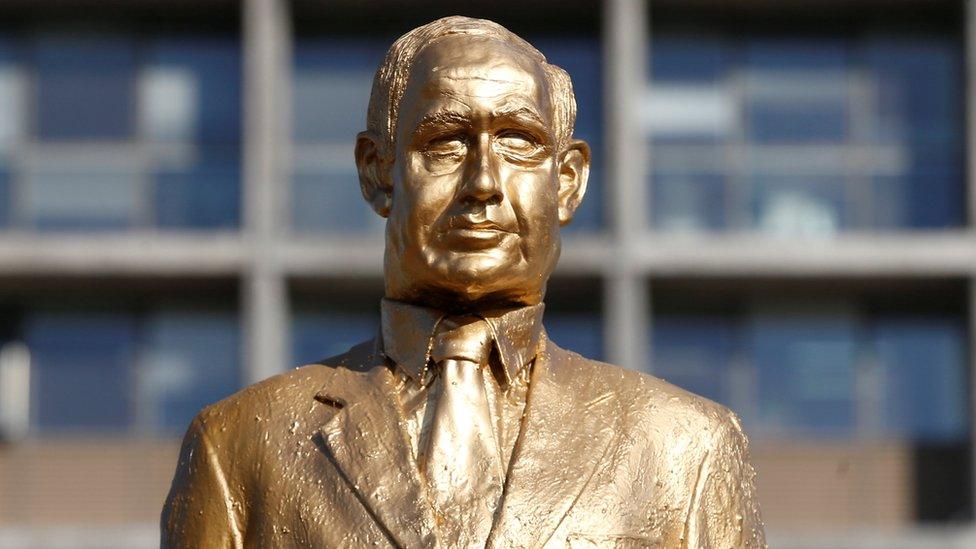Benjamin Netanyahu discusses Iran threat with Theresa May
- Published
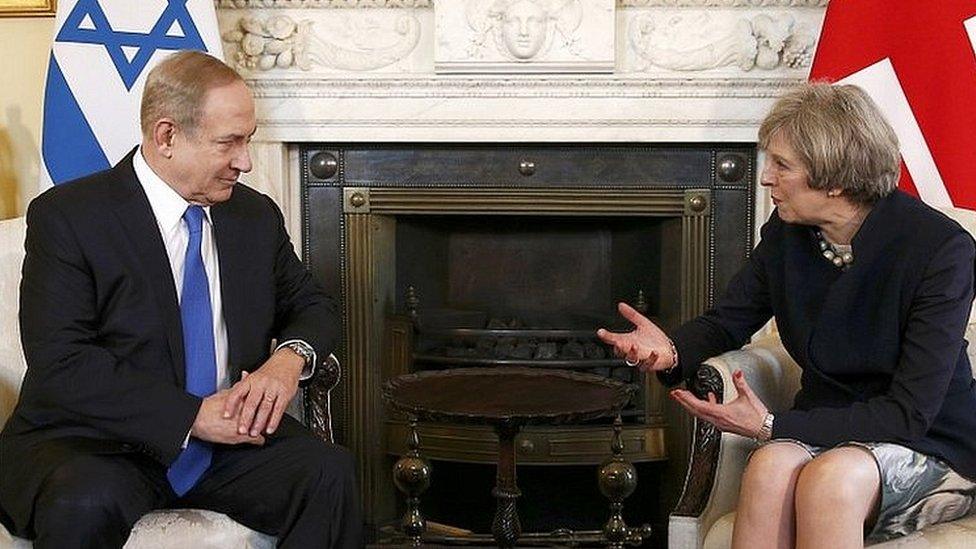
Theresa May has hosted Israeli Prime Minister Benjamin Netanyahu for talks in Downing Street.
Mrs May restated concerns over settlement building in the West Bank, while Mr Netanyahu warned that Iran posed a threat to Europe, after it test-fired a ballistic missile.
The UK prime minister failed to greet her Israeli counterpart when he arrived because of a mix-up over timings.
The meeting was the first to take place face-to-face between the two leaders.
It came after the UK backed a United Nations Security Council resolution in December denouncing Israel's settlements in occupied Palestinian territory as a "flagrant violation" of international law and a "major obstacle" to a just and lasting peace.

Analysis: By BBC diplomatic correspondent Jonathan Marcus
There is a certain symmetry between the British and Israeli prime ministers' situations. Both are experiencing tensions with longstanding friends - Mrs May with Europe over Brexit and Mr Netanyahu with many of the same countries over settlement construction and the failing hopes for Palestinian statehood.
Both are increasingly reliant upon close ties with Washington but are uncertain about just where the Trump Administration is heading. Mr Netanyahu wants to consolidate the relationship with Mrs May - who leads one of the more pro-Israeli governments in the EU.
He also wants her support in standing up to Iran's rising influence in the Middle East. Mrs May will stress Britain's opposition to Israeli settlement construction and her continuing support for the Iran nuclear deal.
But beyond that there is room for stronger ties, not least in the economic area where Israel's championing of high-tech industry is seen as a positive model to emulate.

Before Mr Netanyahu's arrival, Labour leader Jeremy Corbyn said: "Theresa May must make clear to the Israeli prime minister that the British government will stand unequivocally behind the rights of the Palestinian people, along with the many who support them in Israel, as well as human rights and justice across the region."
Mrs May's spokeswoman said the prime minister was reiterating "our long-standing position to make clear that we see the continued increase in settlement activity undermining trust".
The UK would continue to push for "a twin-track approach" to the Middle East peace process which also recognised Israel's right to be safe from terrorism, she added.
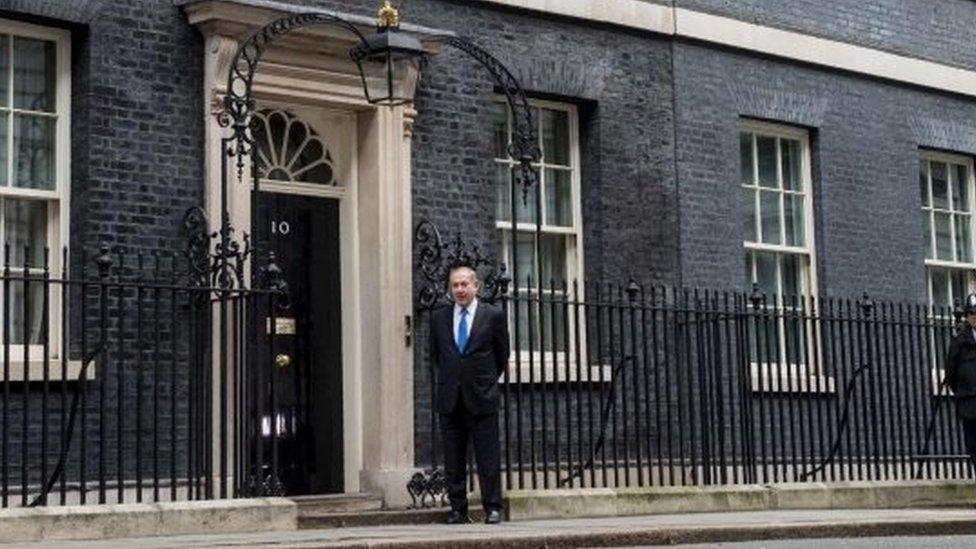
Benjamin Netanyahu arrived a couple of minutes early in Downing Street
The US has imposed sanctions on Iran following the testing of a missile - reportedly a medium-range ballistic missile - last month.
The UK was one of the signatories to the 2015 international agreement by which Iran agreed to curb its nuclear programme in return for the lifting of economic penalties.
At the start of his meeting with Mrs May, Mr Netanyahu said: "Iran seeks to annihilate Israel. It seeks to conquer the Middle East. It threatens Europe. It threatens the West. It threatens the world. And it offers provocation after provocation."
He added: "That's why I welcome President Trump's assistance of new sanctions against Iran. I think other nations should follow suit, certainly responsible nations."
Mrs May's spokeswoman said: "We share concerns about that test. It was discussed at the UN and we made clear our position.
"With regard to the specific agreement relating to the nuclear weapons... it's important that it is very carefully and rigorously policed, but we should also be clear that it has neutralised the possibility of the Iranians acquiring nuclear weapons for more than a decade."
Their first meeting got off to an awkward start after Mr Netanyahu arrived two minutes early and she failed to meet him at the door of No 10, leaving him in the street for a short time before he entered alone.
The pair emerged around two minutes later to shake hands in front of the assembled media. They did not hold a press conference.
- Published30 December 2016
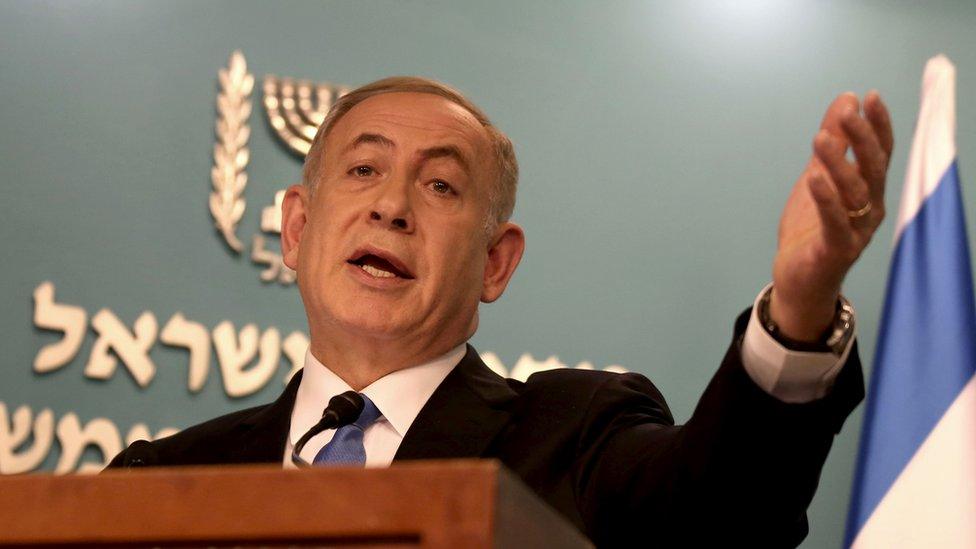
- Published24 December 2016
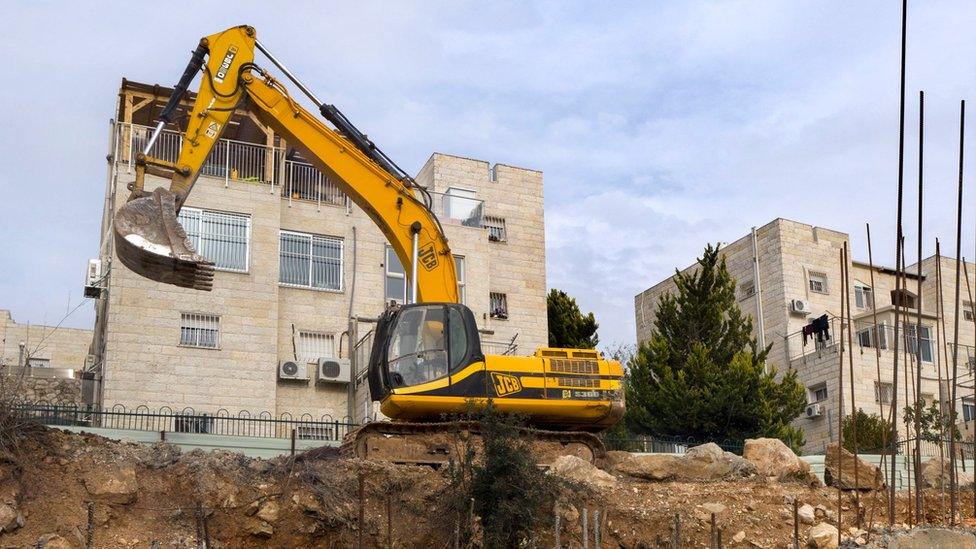
- Published13 November 2016

- Published6 December 2016
